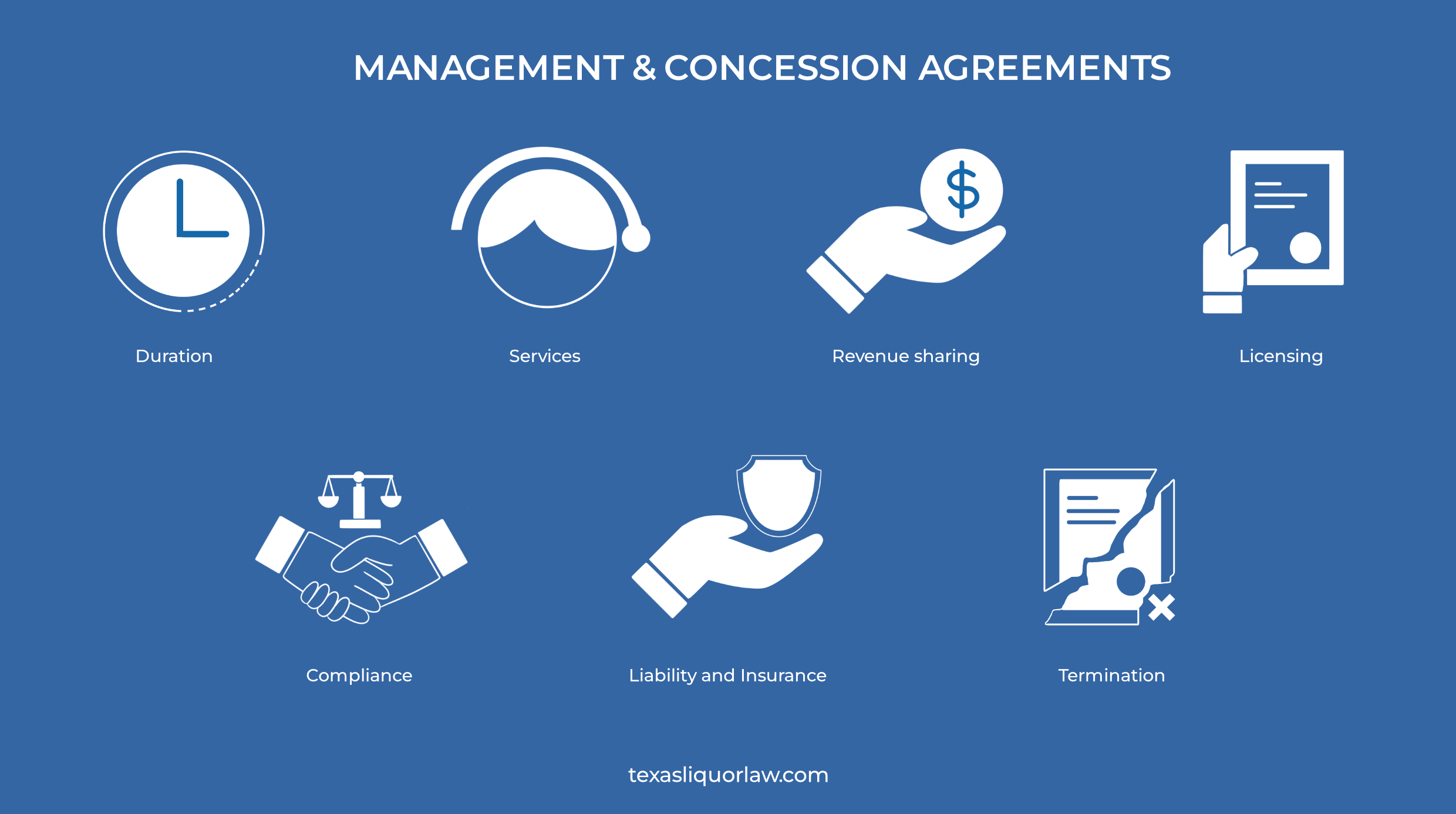The Texas Alcoholic Beverage Commission (TABC) is a state agency responsible for regulating the sale, distribution, and consumption of alcoholic beverages in Texas. A concession and management agreement is a contract between a venue owner and a third-party entity that outlines the terms and conditions for managing the sale and service of alcoholic beverages at that venue.
These agreements are typically utilized for events, stadiums, concert halls, or other large public venues where the owner may not have the expertise or desire to manage alcohol sales directly. The third-party entity, often a concessionaire, takes responsibility for managing the sale and service of alcoholic beverages, ensuring compliance with TABC rules and regulations.
Some common elements in concession and management agreements include:
- Duration: The length of time the agreement will be in effect, usually defined by a start and end date.
- Services: The specific services to be provided by the concessionaire, such as alcohol sales, inventory management, and employee training.
- Revenue sharing: Terms outlining how revenue from alcohol sales will be divided between the venue owner and the concessionaire.
- Licensing: The agreement may specify the responsibility for obtaining and maintaining the necessary TABC licenses and permits for alcohol sales.
- Compliance: The concessionaire’s responsibility to comply with TABC rules and regulations, as well as local and federal laws related to alcohol sales and service.
- Liability and insurance: Provisions outlining liability for alcohol-related incidents and the required insurance coverage.
- Termination: Conditions under which the agreement can be terminated by either party.
It is essential for both parties to understand and follow the TABC regulations in addition to the terms set forth in the concession and management agreement to ensure a successful partnership and avoid potential legal issues.
